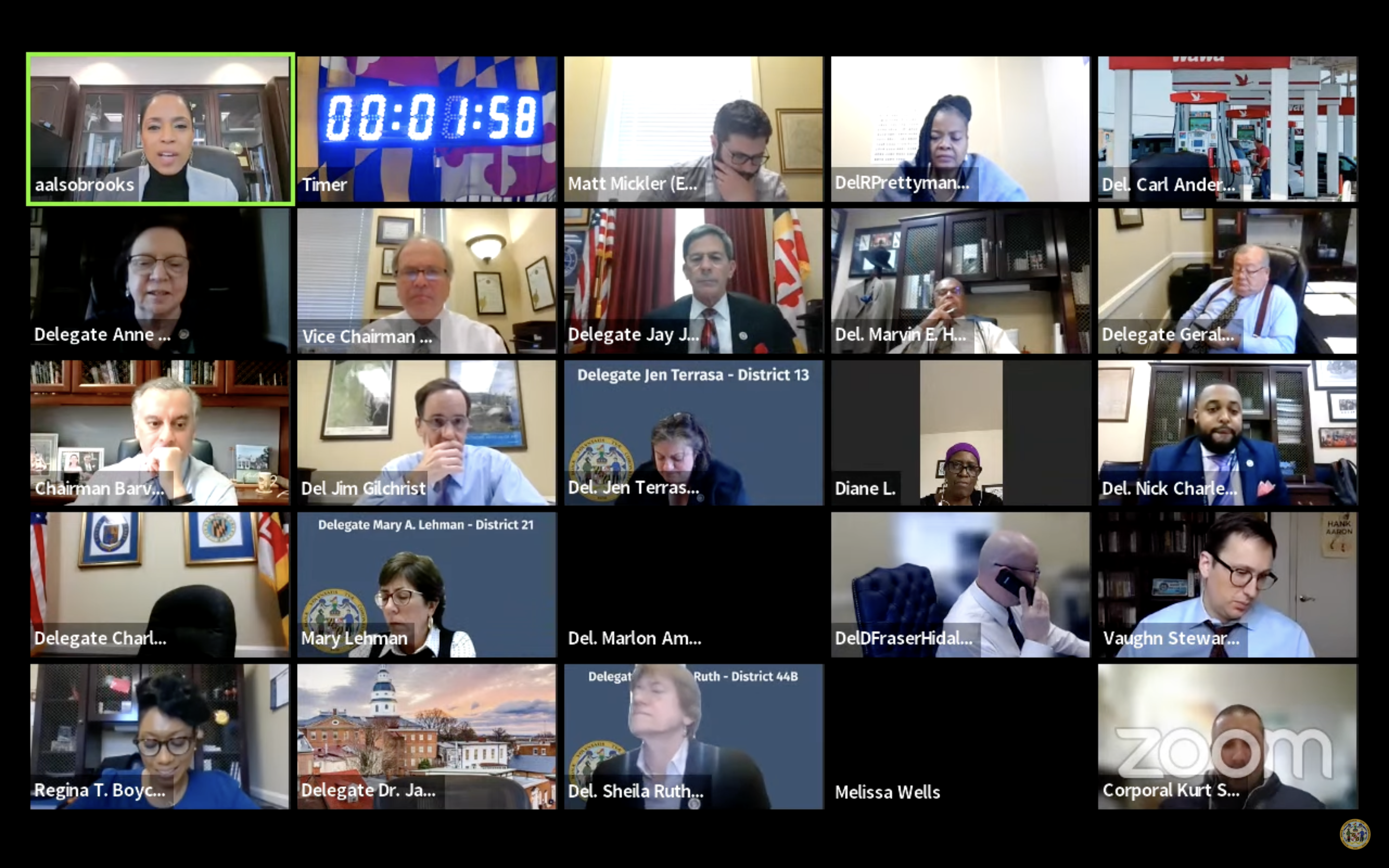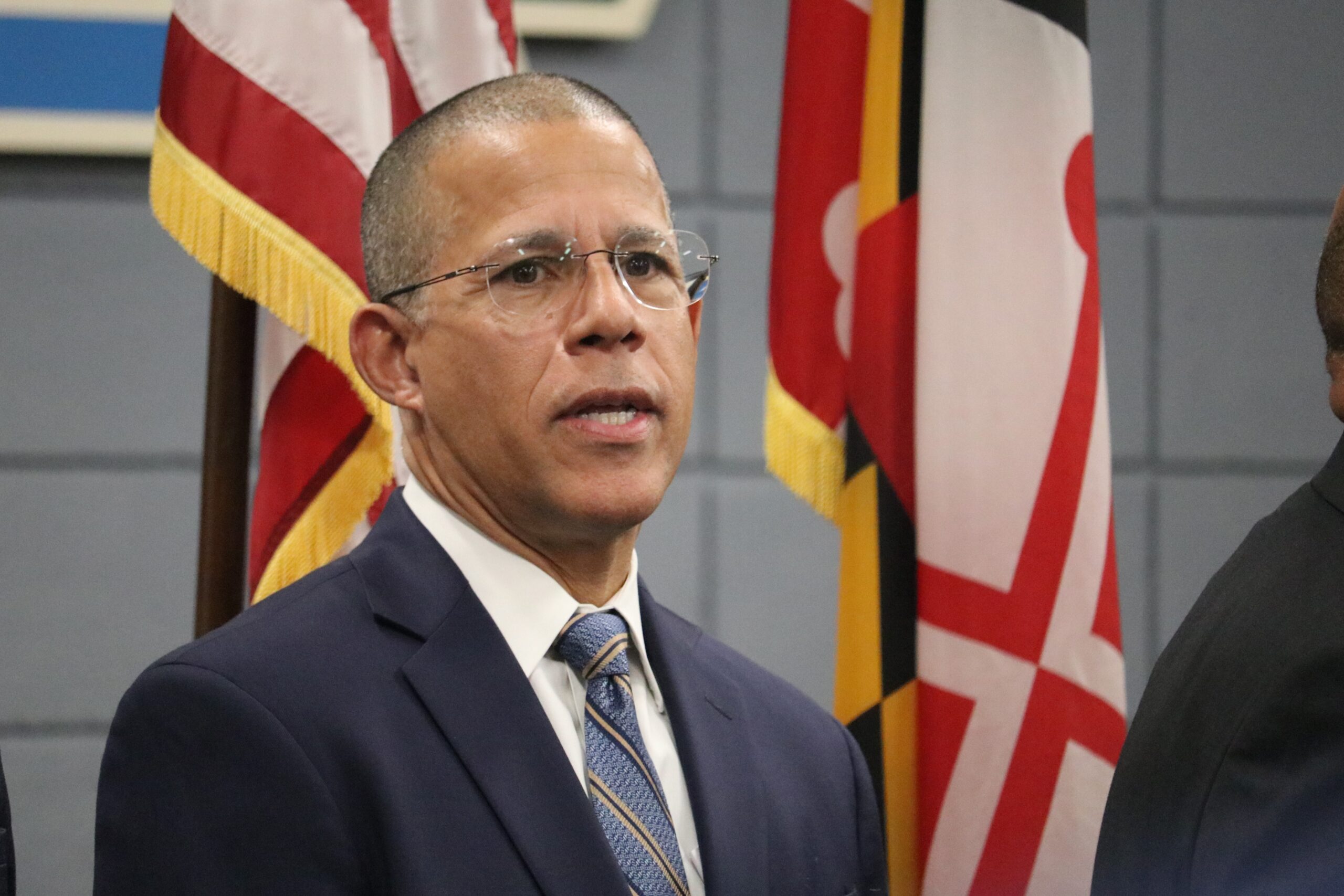Alsobrooks-Backed Recreation Funding Measure Runs Aground in Committee

For the last few weeks, Prince George’s County Executive Angela D. Alsobrooks (D) and her allies in the General Assembly have sought to advance a measure that would shift funding for recreation programs from the Maryland-National Capital Park and Planning Commission to a new entity.
That effort appeared close to collapse on Tuesday, as opponents warned state lawmakers that the measure could imperil existing programs and activities. They also accused the bill’s backers of attempting to rush “late-filed” legislation through the General Assembly without laying groundwork to support the bill’s main goal — the creation of a Prince George’s Recreation Authority.
During a hearing on the measure, House Bill 1057, Del. Mary Lehman (D-Prince George’s) told her colleagues on the House Environment and Transportation Committee that she had “deep reservations” about the proposal.
“This would be a sea-change and I cannot underscore the enormity of this change if Maryland-National Capital Park and Planning’s recreation arm were to become a quasi-governmental authority,” she said.
M-NCPPC has an annual recreation budget of $93 million and backers of the Alsobrooks proposal said county residents are not getting full value for that money. But neither Alsobrooks nor others who testified in support sought to explain how an authority would make better use of those funds than the commission.
Alsobrooks said residents have long expressed “a great deal of dissatisfaction and frustration” with the quantity and caliber of sports, music and arts opportunities in the county. Howard, Anne Arundel and Montgomery each have more than 100 girls recreational league basketball teams, while Prince George’s has eight, she added.
Alsobrooks told lawmakers that when she drove her daughter to a lacrosse match in Northern Virginia, her daughter said, “I like it better over here.”
Critics of HB 1057 questioned how a new bureaucracy would be more efficient at providing activities to the public than the 95-year-old commission, which they cast as a nationally known and “award-winning” enterprise.
Lawmakers have been bombarded by active and retired M-NCPPC employees since the bill was introduced. Workers are concerned that the bill could harm their benefits or pensions or lead to job loss. Alsobrooks sought to assure the committee that it would not.
Because of pushback from political leaders and the public, the county’s House delegation chair, Nick Charles (D), said the measure has been watered down and more amendments are coming. Instead of creating an authority, the revised bill would create a workgroup to determine how to bolster recreational opportunities, he said.
Environment and Transportation Committee Chair Kumar Barve (D-Montgomery) said the bill will be set aside until those amendments are drafted and voted upon by the county delegation — and he appeared to express frustration with the lack of consensus among county leaders.
“I feel like I’m the chairman of the Prince George’s County delegation,” he said dryly. As the conversation veered into amendments that don’t exist, Barve drew the session to an abrupt close. “That concludes this meeting of the Prince George’s delegation,” he quipped.
In an interview, Elizabeth M. Hewlett, the long-serving chair of the commission and head of the county planning board, offered a vigorous defense of M-NCPPC programming. She pointed to a 55-page brochure that describes the activities available to the public.
“We provide all sorts of sports, all sorts of other activities, all sorts of performing arts, theater programs,” she said. “We try to ensure that we create something for everyone.”
When the Prince George’s delegation heard public testimony on the recreation authority bill on Feb. 7, lawmakers were shown a video in which advocates suggested a link between the uptick in criminal acts by young people and a lack of after-school activities.
Hewlett rejected that notion. “That is not where you place the blame for these murders,” she said.
She also expressed frustration with the executive’s decision to pursue a recreation authority before the study group is empaneled. “It’s putting the cart before the horse,” she said. “We would have been happy to engage in conversations about this. Had we worked collaboratively, it would be less friction at the moment.”
Similar concerns were expressed by the County Council in a March 1 letter to the General Assembly. The council asked state lawmakers to hold the bill “to allow for additional community and stakeholder review.” Council members complained that the bill was sprung on them and the public with no warning.
“As you are aware, the bill was late-filed, made available to the public on Sunday February 6th, heard during the House Delegation’s Monday February 7th public hearing, considered in the County Affairs subcommittee on Wednesday February 9th and approved by the full House Delegation, with amendments, on Friday February 11th,” the panel wrote.
Backers of the Alsobrooks bill noted that Montgomery County pulled its recreation funding from the M-NCPPC in the 1950s, creating a department whose director reports to the county executive.
The promotional video shown to the Prince George’s delegation suggested that commission control of recreation funding has roots in a racist past.
“During the racially charged school desegregation battles of the 1970s and the property tax cap battles that followed, Prince George’s County was forced to make dramatic cuts to public education, libraries, [emergency medical services], and social services,” according to the video’s opening slide.
“Despite being 100% funded by county taxpayers, residents are increasingly frustrated over the lack of quality programming,” the next slide reads. “Prince George’s is the only county in Maryland that lacks local control over its recreation department.”
During that meeting, Del. Jay Walker (D), a former NFL quarterback, called the creation of an authority “long overdue.” Charles, the delegation chair, offered his backing as well. He said M-NCPPC activity fees are a barrier for many families.
“Can I close my eyes and say that when I take my son to the (M-NCPPC-funded) Forestville Boys and Girls Club, that the fields are in tip-top shape? Heck no, I cannot,” he said in an interview. “Can I say that I had to pay out-of-pocket for my son to participate in youth sports? Heck yeah, I had to.”
Gino Renne, president of UFCW Local 1994, a union that represents some M-NCPPC workers, told county lawmakers last month that the commission suffers from a “lack of transparency and accountability.” Renne, who has pressed for the entire commission to be disbanded, also made unsubstantiated claims of ethical wrongdoing within the agency.




 Creative Commons Attribution
Creative Commons Attribution